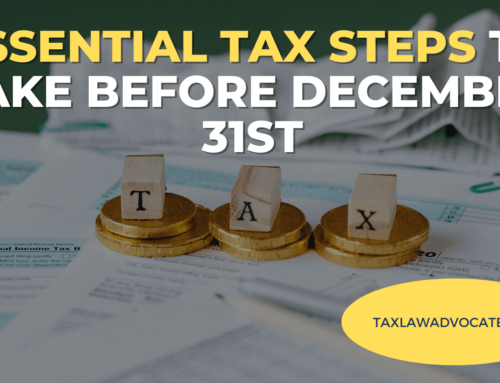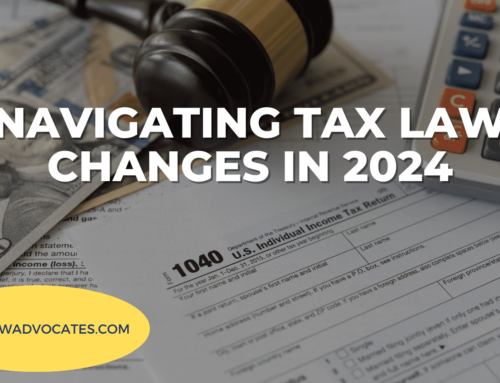No one looks forward to tax season, but it can be particularly overwhelming for those individuals who may be behind on filing or facing a year where they owe more than they can pay. If you’ve found yourself in a situation where tax season is more stressful than average, don’t fret. There are multiple ways you can negotiate with the IRS to work out a plan that won’t break the bank or put you out.
If you’re not familiar already, be sure to learn about the IRS Fresh Start Program.
While we understand that you might want to handle your IRS negotiations yourself, tax professionals with experience in this field are your best bet to get the best deal possible. However, if you want to proceed on your own when it comes to negotiating with the IRS, keep reading to learn the one thing you should never say during your negotiation.
Be proactive
When you are negotiating with the IRS, they may ask you to provide a variety of different types of documentation and information. Do they want to see a history of W-2s? Have them ready to go. A record of your charitable contributions? They’re all typed up and ready to be passed over. Have everything located and ready before starting negotiations to keep things running as smoothly as possible.
Getting the requested information to your caseworker in a timely fashion makes a good impression, while delays can slow down the process. And not providing the documents at all is a surefire way to receive a less-than-ideal decision or a request to start the whole process over again.
Stick to the facts
Giving the IRS what they’ve asked for seems simple enough, but there’s one thing you don’t want to say during negotiations. And that’s being careful not to offer any information that wasn’t explicitly requested.
We’re not suggesting that you hide information or lie to the IRS. After all, lying to the IRS is illegal and could even be considered tax evasion or tax fraud, both of which you’re trying your best to avoid by filing your taxes correctly.
However, that doesn’t mean that you need to give every extraneous detail or over-explain the situation in an attempt to swing the negotiation in your favor. It can be tempting to over-explain yourself in the hopes that the IRS understands precisely why you are making your request and rule in your favor, but in this case, less is more. Offering up an overabundance of unnecessary information may blur the lines, making it harder for you to negotiate the outcome you want.
So, stick to the facts and provide only the necessary and relevant information to answer any question.
Need help?
It’s important to remember that you’re not alone. Millions of Americans owe the IRS each year and many people more than $10,000 in tax debt. It can feel overwhelming. But you don’t have to negotiate with the IRS on your own; we can help! Our team of experienced tax practitioners and tax attorneys is available to assist you. Contact us today to learn how we can improve your financial situation and help you be free of tax debt.
Resources:
Official IRS Website – https://www.irs.gov
Complete list of state tax agencies – https://www.taxadmin.org/state-tax-agencies






